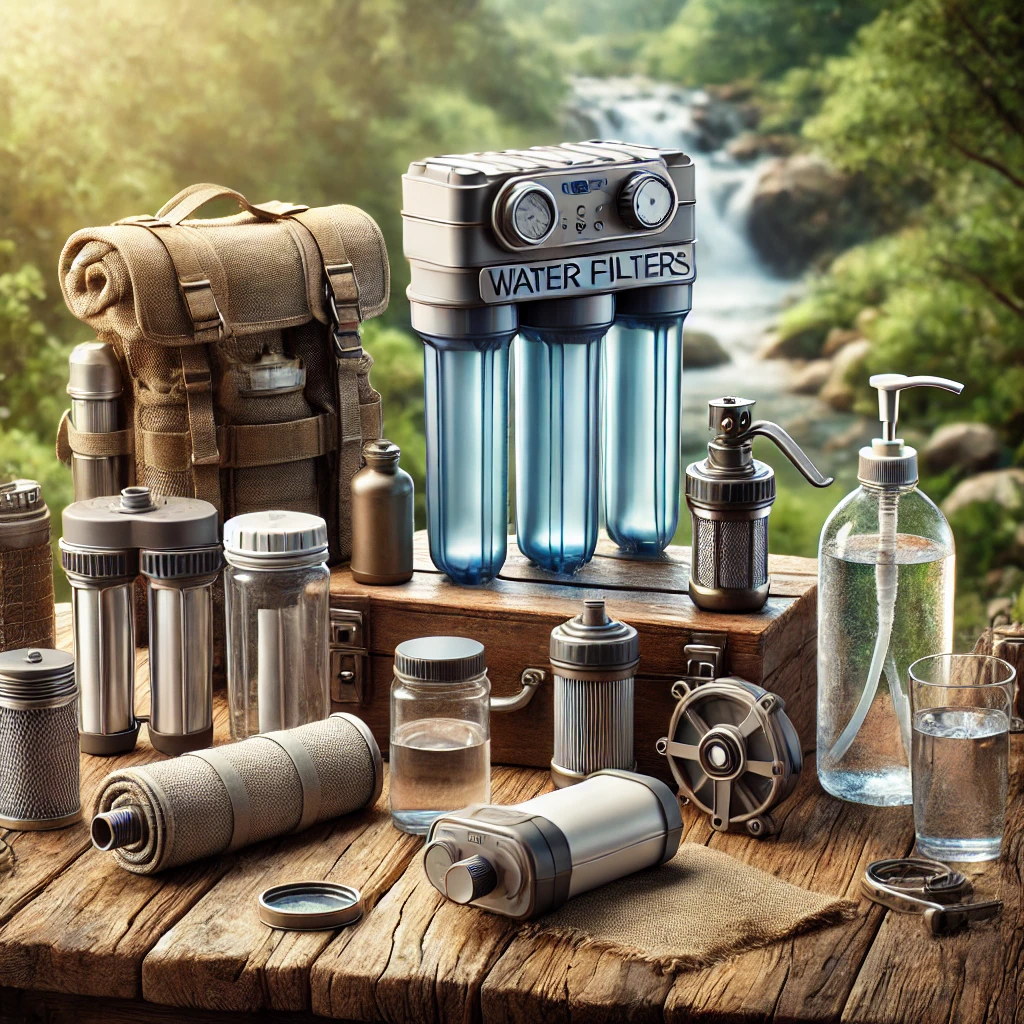Address
304 North Cardinal
St. Dorchester Center, MA 02124
Work Hours
Monday to Friday: 7AM - 7PM
Weekend: 10AM - 5PM
Address
304 North Cardinal
St. Dorchester Center, MA 02124
Work Hours
Monday to Friday: 7AM - 7PM
Weekend: 10AM - 5PM

When in the wild, access to clean water is crucial. While natural water sources can seem plentiful, they often carry harmful bacteria, viruses, and parasites. Using a reliable water filter is essential for ensuring that the water you consume is safe. Here’s a comparison of different types of water filters for outdoor survival situations.
Pump water filters are popular for their ease of use and effectiveness. These filters use a manual pump to force water through a filtration cartridge, which removes contaminants.
Gravity water filters work by using gravity to pull water through a filter, which can be hung from a tree or a backpack. They are easy to use and great for filtering large amounts of water at once.
Straw filters are portable and compact, designed for drinking directly from a water source. These filters are lightweight and ideal for short-term use or when carrying minimal gear.
Bottle filters are compact water bottles that come equipped with a built-in filter. They allow you to drink directly from a water source, making them ideal for hiking or solo trips.
UV water filters use ultraviolet light to destroy bacteria, viruses, and other pathogens in water. They’re fast and effective, but require batteries or charging to operate.
Ceramic water filters have a porous structure that physically removes dirt, bacteria, and sediment. They are often used in combination with other filters to provide more thorough purification.
When choosing a water filter, consider factors like size, weight, filtration speed, and what contaminants it removes. Remember, no filter is perfect, so it’s a good idea to carry a combination of filtration methods or to boil water when possible for added safety.